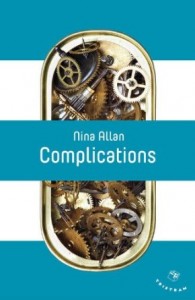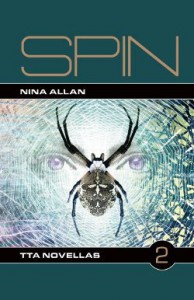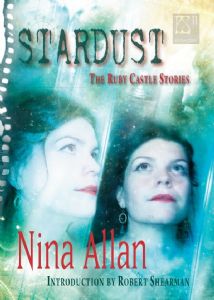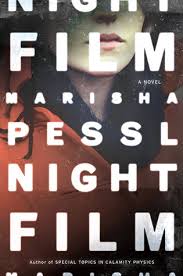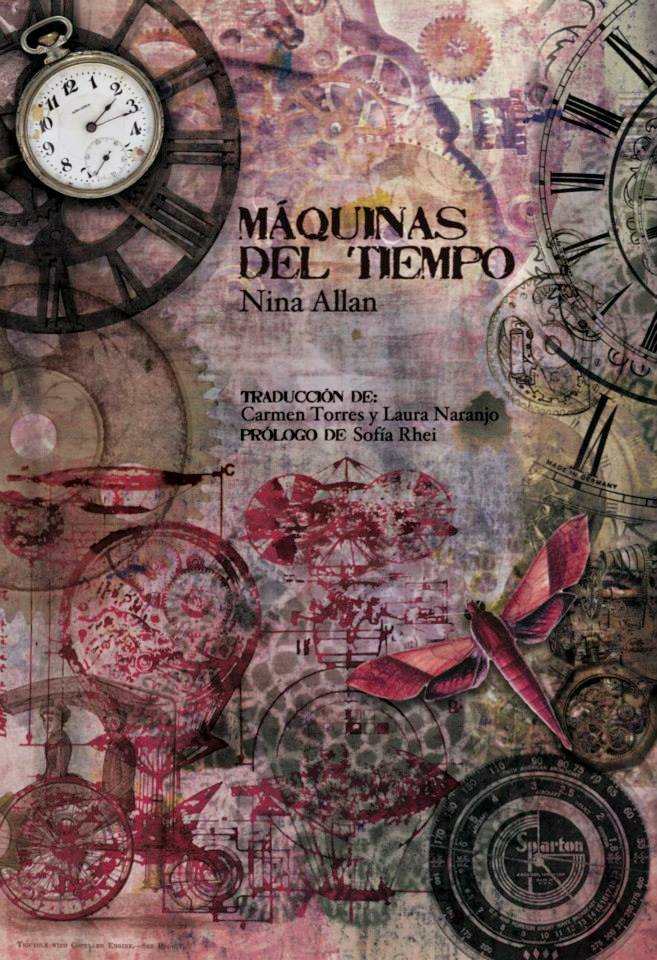David Hebblethwaite of Follow the Thread recently wrote this fascinating post about his recent experience of being a ‘shadow judge’ for this year’s Desmond Elliot Prize and Independent Foreign Fiction Prize, as well as reading and critiquing this year’s Clarke Award shortlist and last year’s Man Booker. The conclusions he draws are worrying for SFF:
“I think that, ten or fifteen years ago, [SFF] was certainly keeping pace [with the literary mainstream]: writers like China Miéville and Jeff VanderMeer were emerging at the same time as (say) Sarah Waters and Michel Faber. These days, however, it seems to me that SF is struggling to keep up.”
David argues that SF has become increasingly conservative, not only in terms of textual form, but also in its willingness to actively engage with contemporary political and social issues – the arena where SF is naturally constituted to excel, in other words. I’m afraid I would tend to agree with him, and would probably go on to add evocative and original use of language to the charter of lack.
Of course, one year’s Clarke Award shortlist does not reveal the full picture of what is (or is not) happening in SFF. The six books we end up shadow-judging have not been selected by an infallibly correct AI, hardwired to home in on objectively the best (as if there even were such a thing) science fiction novels published in the UK in any given year, but by five very human judges whose personal tastes and inclinations are always going to vary considerably and thank goodness for that. And yet, in a year when our five judges could have selected works by Marcel Theroux, Margaret Atwood or Robert J. Lennon yet somehow conspired to come up with Ramez Naam and Philip Mann, instead of forewarning the terminal decline of SFF, might it not be more reasonable simply to ask (as per usual) what the hell were they thinking? The Kitschies had Ruth Ozeki, Anne Carson and Thomas Pynchon on their shortlist, after all, so the game can’t be over just yet.
But we all know perfectly well that David isn’t talking about Pynchon or Carson, writers who, brilliant and innovative as they are, are drawing their influence from SF, rather than contributing actively to the SF conversation. It is not the SF conversation that interests them – I’m sure they barely know it exists – but the metaphorical possibilities of speculative ideas within a mainstream literary context.
(Before I go any further I ought to add that I get terribly nervous around these concepts – or not nervous around the concepts themselves so much as the difficulty of explicating them. I am a writer who works largely by instinct – by touch, if you will, rather than by sight – and my critical apparatus for analysing positions I instinctively understand are fundamentally opposed is not anywhere near so finely tuned as that of Ethan Robinson, say, who earlier this year produced an essay on this subject that is so articulate, so adroit and so necessary I haven’t been able to stop thinking about it in all the months since.)
David writes:
“I’m excited to see authors like Eleanor Catton (who, to my mind, is squarely at the cutting edge of English-language fiction) and Eimear McBride emerging in the mainstream – and especially to see them winning and being shortlisted for multiple awards. But, when I look at genre sf published in the UK, I simply can’t see that they have equivalents emerging. I wish I could.”
The term ‘genre’ is often employed as an adjective of general disparagement for writers or works that are ‘not literary’, but what science fiction critics mean when they talk about ‘genre SF’ is something rather different and a lot more constructive: works that are written from within science fiction consciously as science fiction, as active contributions to the SF conversation, as opposed to essentially mainstream works that happen to make use of science fictional conceits.
I have wasted a whole lot of time in my time, trying to pretend that the latter can be the former, but it just ain’t so (for reasons why, see Mr Robinson’s essay. The only example of a contemporary mainstream writer I can think of who has written ‘proper’, contributory SF is, ironically, Margaret Atwood). The former can and do leapfrog their way in among the latter, though – a fact many mainstream critics dislike so much they will seldom if ever admit the truth of it – and this is where the crux of David’s argument lies. He maintains that fewer SF works than previously are making that leap, and that SF as a whole is on a downward trajectory as a result. I agree. But why is it so? And what needs to happen for this unfortunate trend to be reversed?
I had an interesting experience the other day. I was sitting on the floor of my office, trying to put a call through to the council tax department of Hastings Borough Council (long story). Beside me on the floor was a stack of books (it’s still there) and while the hold music droned on I picked up the book on top of the pile and began leafing through it. That book was/is Samuel R. Delany’s Driftglass, in its Gollancz ‘yellowjacket’ edition. Out of curiosity and perhaps in an attempt to prove something to myself (the issue at the core of this essay is on my mind a lot of the time) I began reading the first paragraphs of all the stories in that collection. I found, as I suspected I would, in each and every one of them language that was chewy and textured and gorgeous and capricious, ideas that sneaked out and bit your ass, storylines that had you caught from the first sentence. Fuck, I thought. This is how it’s done. Out of idle curiosity (and because I still hadn’t got through to the council tax office) I then glanced at the book’s back flap, which displayed a list of ‘Recent Gollancz SF’. Not classics, or Masterworks, just recent Gollancz SF. The works listed there, in no particular order, were by Philip K. Dick, George R. R. Martin, Frederik Pohl, Ian Watson, Robert Silverberg, Algis Budrys, and Arkady and Boris Strugatsky.
I thought about this – what a fascinating snapshot of the science fiction writers Gollancz just happened to be publishing in 1971 – and then I found myself wondering what a comparable back flap from a book published today (let’s say a Gollancz book, for the sake of consistency, though I want to make it clear that this argument is by no means about Gollancz specifically) might have to tell us about the current state of British SF publishing and I tell you, it didn’t make for happy contemplation.
With M. John Harrison, Christopher Priest, Adam Roberts, Ian McDonald and Simon Ings on their roster, Gollancz still surely boasts some of the finest writers in the business. But we’d do well to remember that authors with decades-long careers behind them will always constitute less of a financial risk for the publisher. When it comes to new blood – where the risk lies, in other words – aside from Hannu Rajaniemi I couldn’t think of one new-generation writer Gollancz publish who is actively innovative, who comes anywhere even close to doing what Delany was doing in 1971. That was a scary, scary thought. And if Gollancz, with their venerable back catalogue of masterworks and estimable track record in promoting fresh talent, isn’t actively seeking out newer writers who want to do more than write commercial core genre, who the hell is?
I heard from a reliable source recently that [a certain major SF publisher] are steering away from ‘difficult’ SF at the moment, because the sales of [probably the best book they’ll publish this year] have proved so disappointing. If sales are so disappointing, perhaps they should ask themselves if this might have anything to do with the fact that they’ve devoted precious little effort to publicizing the book – they didn’t even organise a launch event for it. Perhaps it’s they that have fallen down on the job, because it certainly isn’t the author, or the book. I heard from a second trusted source that another big SF imprint have only acquired one new writer in the past twelve months – too bad then that the book they decided to give their backing to is a pallid, half-hearted dystopia that will make zero impact on the genre and will fade away unnoticed within two months of publication. Meanwhile, one of the few seriously good new writers is being threatened with contract curtailment due – again – to disappointing sales figures, and not a word about the likely cause of those figures, that the imprint cocked up their marketing policy, effectively separating the book from its core readership.
I think there’s actually a serious problem with the way the larger publishing imprints view SF in the current market. Back in the day, when Gollancz was publishing Delany and Disch and Dick, SF was seen by publishers as the next big thing, the literature of the new, wilfully different from mainstream social realism, something they might well benefit from promoting. We had Faber publishing new young SF writers like Christopher Priest, Brian Aldiss and Kit Reed. We had Kingsley Amis writing New Maps of Hell. We had the formal innovations of the New Wave. I’d go so far as to say that science fiction was viewed by both its readers and its promoters as a warrior literature that threw down a challenge to the old order. It’s always tempting to hark back to ‘the good old days’ as a kind of golden age of literary enlightenment, and I don’t mean to suggest that was the case at all – but it does seem to me that SF today, far from being a warrior literature, is seen by the industry as a readily marketable, easily packaged, tasty junk food full of ‘cool stuff’ and bits of shiny. They don’t want it to throw down a challenge, because conventional wisdom states that challenge frightens readers. So much easier to publish another low-grade zombie novel, especially when that’s precisely what your colleagues over at [-] will be doing, too.
It would seem self evident that cowardly publishing makes for cowardly writing, and it’s a vicious circle. The SF commentariat has preoccupied itself a great deal – and rightly so – in recent years with the industry’s continuing inequalities in terms of gender split. When faced with the question of why they don’t publish more women, industry representatives have often tended to fall back on the truism that they can’t publish what isn’t being submitted. To me at least it would seem self evident that if these same industry representatives genuinely considered it important and/or financially worthwhile that more SF by women be published, they would be pretty damn quick about getting off their arses and finding some. I would suggest that the same principle is also true of innovative, challenging, paradigm-shifting SF: the reason that so little of it is being published is not because it’s not being written, but because the industry is not going out of its way to find it, promote it, stimulate demand for it. Because stimulating demand, promotion, acquisition of talent – are these not after all the industry’s key functions?
If that’s what’s (not) happening, what can we do about it? In one of the comments on David’s post, Tomcat in the Red Room writes:
“You’d think 10 years after Light and the New Weird and the rise of Michael Cisco etc, that there would, indeed, be more new writers trying/(influenced by) that kinda stuff. Does SF need its own David Foster Wallace to write a novel in fractals, I wonder?”
The short answer to that, Tom, is yes, we do. We also need a publishing industry that believes enough in its readers to offer them something more than the literary equivalent of processed white bread, we need readers to keep on complaining and debating and arguing the toss. Most of all, we need writers to stop drawing their influences from Supernatural and The Walking Dead – to switch off the crap SFF derivatives and start taking some risks. As writers, we need to remind the world that we are still a guerrilla literature. Writers who let themselves be conned by the major imprints into moderating their voices may think they’re buying themselves some security, but they’re not. What they’re actually purchasing is their own expendability.
Tell them you won’t buy it.
